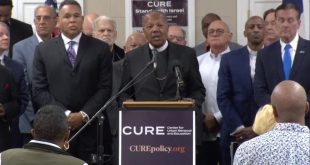The Obama administration allows religious non-profits to seek an “accommodation” to the contraceptive coverage requirement, which means they don’t have to pay for the drugs. The organization’s contracted insurance company must pay.
Some object to even this, because the employees at the religious non-profit still have access to the contraceptive drugs through the organization. These non-profits want no association with drugs that might cause abortions, whether or not they pay for them.
Lead plaintiff Priests for Life says the accommodation doesn’t go far enough. Filing the notice to opt out means they’re still making the drugs available. A three-judge panel of the U.S. Court of Appeals for the District of Columbia disagreed. The court just ruled that the accommodation does not violate religious freedom.
For those who consider abortion murder, that’s a strange contention. If it’s against your religion to kill unborn babies, giving your employees access to this coverage shouldn’t be a problem for you? The Washington Times reports:
Priests for Life, an anti-abortion ministry and lead plaintiff in the case before the D.C. Circuit, told the appeals court that the latest tweak did not go far enough, either, but the court was unswayed.
Father Frank Pavone, the group’s national director, said Friday they will not comply with the ruling.
“To ask a group of priests to cooperate in the government’s plan to expand access to birth control and abortion-inducing drugs is about as contrary to religious freedom as you can get,” he said.
The U.S. Supreme Court has already ruled in the Hobby Lobby case that the government can’t require closely held corporations with religious owners to pay for abortion-inducing drugs. Such a law violates the Religious Freedom and Restoration Act.
 CURE News and Clergy Blog News and Commentary for Christians
CURE News and Clergy Blog News and Commentary for Christians



